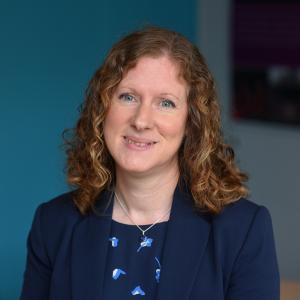
Many of my clients knowledge of a courtroom comes from TV dramas and films. They have never set foot in one, let alone had to give evidence before a judge. That is enough to make anyone feel nervous, but for my clients who may be vulnerable because of their age or what has happened to them it can be even harder. I’ve found that when they know what to expect the whole process becomes a lot less scary and daunting.
In this series of articles I will be explaining what to expect when you go to Court on a matter concerning children and when adults, vulnerable witnesses and children give evidence.
What to expect when attending Court
It is natural to feel nervous when you attend Court. Your legal advisor will arrange a place at which to meet you. You will then be taken to an area to discuss your case with your legal advisor.
FHDRA hearing
The first hearing in a children case is the FHDRA hearing. This is a first hearing dispute resolution appointment.
Before the FHDRA hearing Cafcass should have called both you and your opponent to talk to you and to prepare a safeguarding letter to the Court. This will be available for the Judge and will form the basis of any discussions that your legal advisor has with the other party to try to progress your case, or reach an agreement. Cafcass are likely to be at the Court to discuss your case and try to assist in resolving the issues. If an agreement cannot be reached we will look to see:
- Whether a full Welfare Report is required (which takes approximately 12 weeks) or a wishes and feeling report (reporting the wishes and feelings of the children which takes between 4-6 weeks)
- What issues are in dispute
- Whether a Fact Finding hearing is required (normally where one party is alleging Domestic Abuse against the other)
- Set a timetable, which might include filing statements, a Dispute Resolution Hearing and a Final Hearing
You will then attend before the Judge. You are unlikely to need to say anything in the courtroom and your legal advisor will do all of the talking for you.
DRA hearing
The next hearing is likely to be the Dispute Resolution Hearing. This is a hearing at which the Judge will look to see whether the case is capable of being resolved. Where CAFCASS have prepared a report then it may be possible that an agreement can be reached in light of its recommendations. If so the court will make an order in those terms and the proceedings will come to an end. If not the court will want to check that everything is in place for a final hearing, including both parties preparing statements setting out their respective cases, explaining what they are seeking and why.
Again, this is a hearing at which you are unlikely to need to speak as your legal advisor will do the talking for you.
Final Hearing
If matters remain unresolved as part of the process, the Judge can make a decision at a final hearing. Prior to the hearing you will have prepared a statement setting out what you want the Court to consider and why.
The final hearing is a hearing at which you may need to speak. If you do, you will be called to the witness box and take the oath (on a bible) or affirm. You will then be asked questions by the other party and the Judge.
I advise that clients listen to any question carefully and you should not be afraid to ask if you need a question to be repeated or rephrased, if they do not understand them. I find it helps to direct any response to the Judge as they are making the final decision and in doing so, you will turn away from your opponent. There will be summaries made by both sides and the Judge will then make a final decision and give a Judgment.
Remember that your lawyer is on your side, so never be afraid to ask questions about what to expect before you go to court.
Sarah Bell is a senior associate in our family team and a member of Resolution. Sarah can be contacted on 01872 265100 or by email family.truro@stephens-scown.co.uk.
